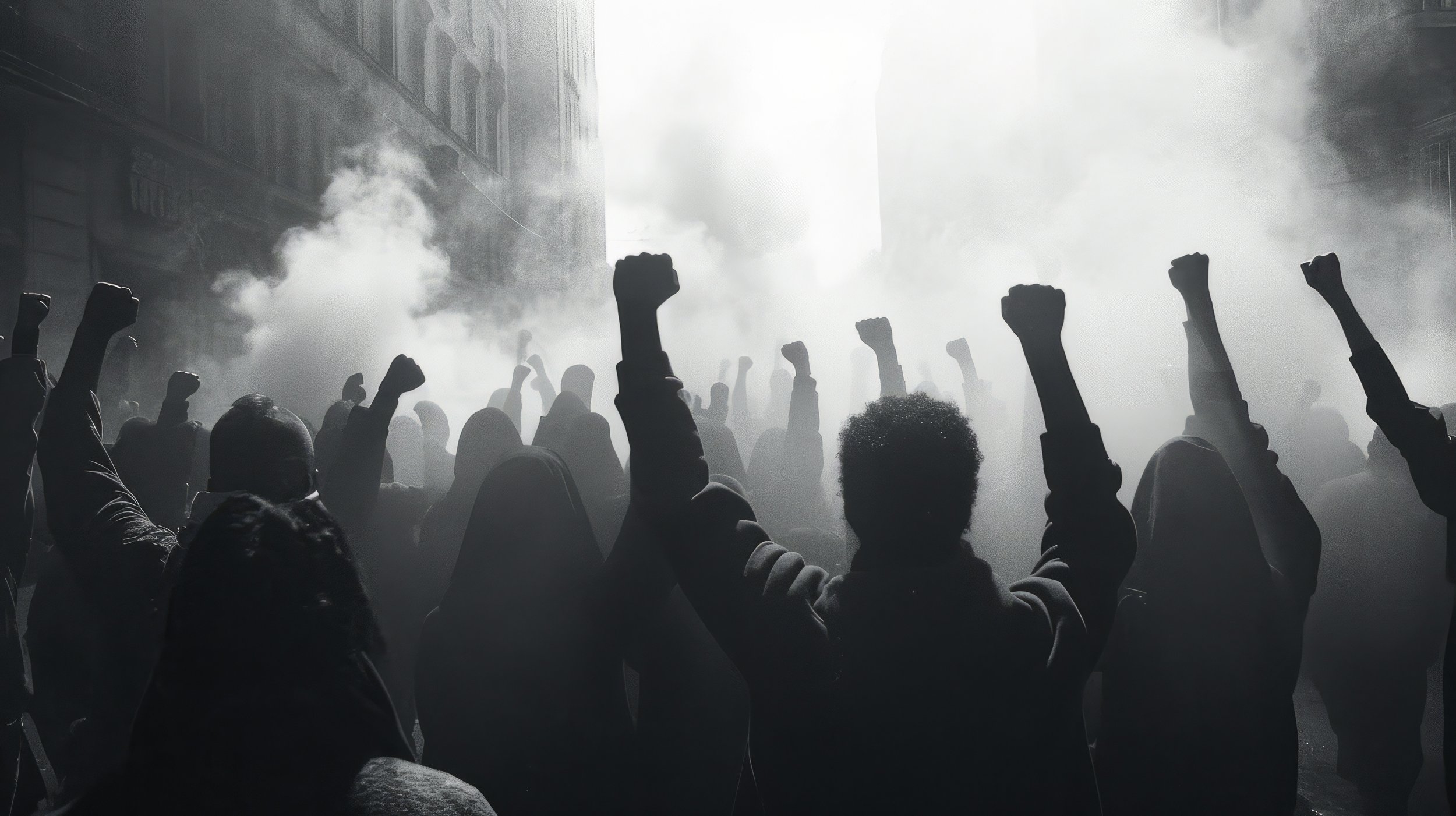
DEMAND RIGHTS AT
COP
A network of civil society organizations working to ensure that Azerbaijan upholds its international obligations pertaining to human rights and climate justice
In Solidarity for Climate and Human Rights
Demand Rights at COP is a network of civil society organizations working to ensure that Azerbaijan upholds its international obligations pertaining to human rights and climate justice.
The rare international spotlight on Azerbaijan as it prepares to host COP29 represents a critical opportunity to mark strong concern about its crackdown on independent civil society and press for an end to abuses.
Our Objective
The Demand Rights at COP Network is dedicated to ensuring that Azerbaijan upholds its international human rights and climate justice obligations. This includes ensuring COP29 is a meaningful forum for discussing climate goals, ending politically motivated imprisonments, holding accountable government officials responsible for torture and mistreatment, and revising laws to lift restrictions on civil society. Although Azerbaijan is set to host COP, the country’s current environment is fundamentally incompatible with the free and open dialogue required to address climate goals.
Launched on September 11, 2024 the network includes organizations and individuals representing human rights and climate advocates from around the world. To read more about our concerns regarding Azerbaijan’s humans rights record and our calls for action, please read our joint statement.

Framework for Action
-

Provide a safe and productive environment to discuss climate goals
Azerbaijan is the third authoritarian government and the second petrostate in a row to host COP. It has appointed a former employee of the state oil company as president of COP29. These conditions make it difficult to discuss meaningful actions to address the climate change crisis. We call for Azerbaijan to ensure that climate activists are actively involved in COP29 and can conduct their work unhindered.
-

End politically motivated imprisonment
The government of Azerbaijan has imprisoned a wide range of civil society actors, including journalists, political opposition leaders, academics, and human rights defenders. We call for all charges against them to be dropped, their immediate and unconditional release, and an end to the weaponization of the judicial system.
-

Hold accountable government officials responsible for torture and mistreatment
Torture is endemic in Azerbaijani prisons. However, there is a lack of accountability for perpetrators. In July 2024, the Council of Europe’s Committee for the Prevention of Torture and Inhuman or Degrading Treatment or Punishment (CPT) took the rare step of issuing a public statement to highlight concern about the Azerbaijani authorities’ persistent lack of cooperation with the body. We call on Azerbaijan to cooperate fully with the CPT and other international human rights monitoring mechanisms and heed their recommendations to address abuses, including ensuring that independent investigations are conducted into allegations of torture and perpetrators are held accountable.
-

Revise laws to lift restrictions on civil society
Azerbaijan has consistently instituted laws that restrict civil society and independent activism. These include a media law, an NGO registration law, and a law on political parties. This legislation has severely shrunk the civic space, making it difficult or impossible for independent entities to function. We call on Azerbaijan to bring its laws into compliance with its international obligations.
Demand Rights at COP Network
Featured News
Not at COP
A global gathering of independent civil society outside Baku

Frequently Asked Questions
-
COP, which stands for Conference of Parties, is the main decision-making body for the United Nations Framework Convention on Climate Change (UNFCCC). At its annual meeting, governments assess global efforts to advance the Paris Agreement and the Convention, and limit global warming to 1.5°C, as informed by the latest science. At COP, world leaders come together to measure progress and negotiate the best ways to address climate change.
There are now 198 Parties (197 countries plus the European Union) to the Convention, constituting near-universal membership.
-
The next Conference will take place in Baku, Azerbaijan, from November 11 to 22, 2024.
This marks the third consecutive year that an authoritarian country is hosting COP, following Egypt in 2022 and the United Arab Emirates in 2023.
-
Yes. Numerous independent observers have categorized Azerbaijan as an authoritarian state with severely limited political and civic freedoms.
The Economist’s 2023 Democracy Index labels Azerbaijan as authoritarian, giving it a score of 2.8 out of a possible 10, placing it 130th out of 167 countries.
The V-Dem Institute has labeled Azerbaijan an “electoral autocracy.” It ranks in the bottom 10-20% of the Institute’s Liberal Democracy Index, just above Russia.
Freedom House’s 2024 Nations in Transit report identifies Azerbaijan as a “consolidated authoritarian regime,” giving it a score of 1 out of 100. Likewise, the 2024 Freedom in the World report categorizes Azerbaijan as Not Free, giving it a 0/40 for Political Rights and 7/60 for Civil Liberties.
Reporters Without Borders’s World Press Freedom Index ranks Azerbaijan 164 out of 180 countries.
Since assuming office in 2003, the government led by President Ilham Aliyev has severely limited political competition and pluralism and committed widespread violations of human rights and fundamental freedoms. Although the country’s constitution establishes a dual executive system with a president, a prime minister, and separate branches of government, Aliyev and his New Azerbaijan Party have effective control over the executive, legislative, and judicial branches. The New Azerbaijan Party controls the National Assembly and exerts tremendous influence over the legislation that it adopts. A deeply flawed referendum in 2016 resulted in the adoption of nearly 30 constitutional amendments that significantly expanded Aliyev’s power, and was denounced by Western observers. Among the changes were the extension of the presidential term from five to seven years, the creation of the post of first vice president, directing succession from the president to the first vice president, and granting the president the ability to dissolve parliament. Five months after the changes were passed, Aliyev named Mehriban Aliyeva, his wife, to the post of first vice president. In February 2024, Aliyev won a fifth consecutive term with 92% of the vote, keeping him in office until at least 2031.
-
Yes. Transparency International’s Corruption Perceptions Index gives Azerbaijan a score of 23 out of 100 placing it 154 out of 180 countries.
A 2012 report by the European Stability Initiative entitled Caviar Diplomacy described how the Azerbaijani regime gained influence with European policymakers by offering bribes.
In 2017 it was revealed that Azerbaijan spent $2.9 billion dollars between 2012 and 2014 to curry influence, pay lobbyists, apologists, and to launder cash. The scheme, known as the Azerbaijani Laundromat, spent money in Germany, the UK, France, Turkey, Iran, and Kazakhstan. The source of the money is not always clear but it came from companies linked in President Aliyev, state ministers, the International Bank of Azerbaijan.
-
No. Azerbaijan’s economy is dominated by oil and gas, which account for 89% of its nearly $40 billion in annual export revenue. Several pipelines that supply the region start in Azerbaijan. The most consequential of these is the Southern Gas Corridor, the European Union’s twelve-year, $45 billion project to build a network of pipelines from Azerbaijan to Italy to reduce European dependence on Russian natural gas. Azerbaijan exports approximately 10 billion cubic meters of natural gas to Europe annually through the corridor, amounting to 10 percent of gas imports to the EU.
-
Beginning in December 2022, Azerbaijan initiated a crackdown on civil society that resulted in the arrest of dozens of journalists, civic activists, lawyers, and political opponents under spurious and politically motivated charges.
The recent spate of arrests fits a familiar pattern in Azerbaijan and the government’s well-documented record of restricting internationally-protected human rights. The government has initiated a series of crackdowns on civil society over the past 15 years, often corresponding with events where local dissidents were able to draw international attention to the dire human rights situation in the country. The trend began around the time of the Arab Spring movements in 2011 and has continued through Baku’s hosting of the 2012 Eurovision Contest, the presidential election of 2013, Azerbaijan’s leadership of the Council of Europe’s Committee of Ministers in 2014, the country’s hosting of the European Olympic Games in 2015, the parliamentary elections of 2015, the constitutional referendum of 2016, the COVID-19 pandemic, and the Second Nagorno-Karabakh War.
-
As of August 2024, Azerbaijani activists have documented 303 individuals currently detained on politically-motivated charges. More than 100 of these individuals were arrested in the last year. You can learn more about individual prisoners here on our website.
-
Civic space is shrinking in the country. For example, a new media law, passed in December 2021, created new rules requiring outlets to register with the government, journalists to complete unrealistic training, and outlets to publish a minimum of 20 items per day, a nearly impossible benchmark for small independent outlets.
A new law on political parties came into effect in January 2023 that introduced new restrictions on registering parties and requires that parties submit to the government a complete list of their members, including their national ID numbers and addresses. The law is so restrictive that at least 15 pro-government parties have been dissolved as a result.
Complicated and onerous registration procedures create a barrier for individuals who desire to start non-governmental organizations (NGOs). Under Azerbaijan’s NGO law, the government can interfere with an organization’s operations and funding, or even shutter the organization completely. Moreover, prosecutors have used the criminal code to imprison NGO leaders for ostensibly failing to adhere to regulations. Amendments between 2013 and 2015 gave authorities broad discretion to dissolve, fine, and freeze assets of NGOs for infractions of administrative regulations. More recently, amendments granted tax exemptions to some NGOs and established a simplified online registration. However, many organizations are unable to register because they are officially rejected or never received a decision from the Ministry of Justice. In May 2021, the European Court of Human Rights issued 25 judgments that found Azerbaijan violated its citizens’ right to freedom of association by failing to register NGOs.





































